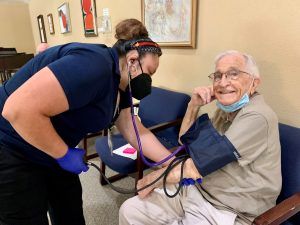
What is High Blood Pressure?
- Blood pressure is defined as the force of blood against your artery walls as it goes through your body.
- Health problems may occur when blood pressure stays high for prolonged periods of time.
- Uncontrolled high blood pressure may lead to heart disease and stroke.
